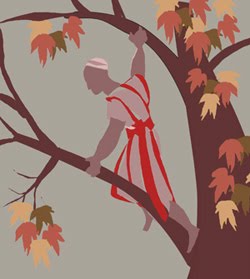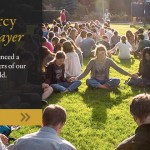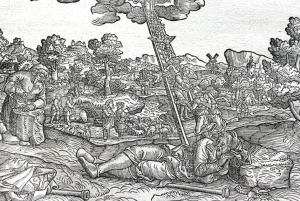 Last weekend Priscilla and I flew to Dallas to teach in an organization called United Methodist Women. We’d written the 2014 spiritual growth study, How Is It with Your Soul?, so they asked us to teach. We had a wonderful time with a remarkable group of people who share an equal amount of hunger for scripture and for justice.
Last weekend Priscilla and I flew to Dallas to teach in an organization called United Methodist Women. We’d written the 2014 spiritual growth study, How Is It with Your Soul?, so they asked us to teach. We had a wonderful time with a remarkable group of people who share an equal amount of hunger for scripture and for justice.
I arrived late. Priscilla and I were scheduled to leave at 6:45 AM on Thursday, but it was not to be. Jeremy graduated on Father’s Day, and our whole family, one by one, fell to a vicious flu. My 88 year old mother fell first on Monday. Priscilla and Chloe fell next, so they were slightly better by Wednesday. I fell on Wednesday afternoon, and Jeremy on Wednesday night, so I stayed up with him through the night, poor kid.
I postponed my trip until Friday afternoon, arriving during the second session, and I jumped in to teach. The session ended with lectio divina, and here is where this post begins in earnest. Lectio divina is a meditative way of reading scripture, which we recommend in the 2014 spiritual growth study. There are all sorts of variations of method, but we use a particular kind suggested by Sister Monica of St. Placid Priory, a women’s Benedictine monastery located about ninety minutes south of Seattle.
In this form of lectio divina, an individual or group reads a brief text of scripture three times slowly. Each reading has a different focus:
- During the first reading, we listened for a word that caught our attention. Just a word. Then there was one minute of silence, followed by the opportunity to speak that word.
- During the second reading, we listened for an emotion we felt as the text was read. Then there were two minutes of silence, followed by the opportunity to express that emotion to our group.
- During the third reading, we listened for an invitation we received for the near future. Then there were three minutes of silence, followed by the opportunity to describe that invitation.
Lectio divina is a simple method of reading that yields profound insight. And on Friday night, after a week of viruses, unmade plans, and a hurried trip to Dallas, it did. The text we read was the story of Zaccheus, the wee little tax collector who, blocked by the crowds, climbed up into a tree to see Jesus. Here’s what I saw and felt and heard.
- During the first reading, the word, hurry, caught my attention. Zaccheus ran ahead when he couldn’t see Jesus and climbed the tree. Jesus passed that way and told Zaccheus to hurry down, so Zaccheus hurried down and was happy to welcome Jesus.
- During the second reading, I felt disappointment. Jesus told Zaccheus to hurry, with the promise, “I must stay at your house today” Since the shooting at Seattle Pacific University a few weeks ago, I’ve not really lingered, stayed put, with Jesus.
- During the third reading, I heard the invitation to do something—anything—practical to see Jesus. Maybe not climb a tree, but something, somehow to see Jesus.
When I put these together, I saw something glaring. My actions were exactly backwards, a negative mirror image of Zaccheus. I had lingered, stayed away, from Jesus. When Jesus and I were together, I hurried away. Zaccheus hurried in order to have Jesus stay with him; I stayed away then, when I was with Jesus, hurried away.
So, yes, I’d better do something practical and, in fact, I have, carving out a time and place to linger with Jesus. I’m reading Eugene Peterson’s The Message, starting at the start, with Genesis 1.
I noticed something else in the story of Zaccheus. Jesus was coming to the end of his journey. Anyone who’s had an introductory course on the New Testament knows that, in Luke’s gospel, Jesus sets his face to Jerusalem in Luke 9:51. By Luke 19:11—just after the story of Zaccheus—he is near Jerusalem. When I get near the end of a journey like last Friday night’s, I become anxious, preparing to get there, packing my carry on and checking the pouch in front of me. And that’s after a three hour plane flight, not a journey that takes weeks.
Still, notice what Jesus does: he stops, he looks, he talks, he stays. The story says he entered Jericho and was passing through it. If I’d been passing through, nearly in Jerusalem, I’d push through, probably ignoring little people perched in trees. Not so Jesus, who was not in such a hurry that he ignored what one person in our lectio divina group called invisible seekers. For Jesus, no goal or destination could keep him from staying with receptive souls.












